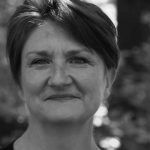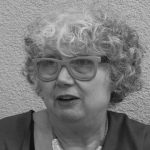“Levels of socio – economic impacts of CWS and their analysis”
This school marks the start of the empirical stage of ESRs projects and aims at focusing on conceptual debates regarding peripherality and development, and link CWS to wider labour struggles in cities and beyond, understanding the turn towards platformization and commodification of labour. Keynote speeches will engage participants in theoretical discussions and expand their conceptual understanding to better explore the developmental processes of CWS in rural and peripheral areas their wider impacts at the local and regional level, as well as at the level of the individual worker and the enterprise. Through workshops, seminars, and roundtable discussions, ESRs and invited PhD candidates will have the opportunity to get trained in transferrable skills such as project management and communicating research through audiovisual means.
The preliminary agenda of the training event:
|
2/10/2022 Sunday |
19.00-20.00 |
Introduction to the CORAL School |
Vassilis Charalampidis, ECHN |
|
20.00- |
Reception |
||
|
3/10/2022 Monday |
10.00-11.30 |
Keynote speech: The reconnection of peripheral areas: a re-appraisal of nexogenous development Moderator: Vasilis Avdikos ESR Discussants: Frederica Ammaturo, Colm Stockdale |
Prof. Bettina Bock, Wageningen University |
|
11.30-12.00 |
Coffee Break |
||
|
12.00-13.30 |
ESR session: CWS best practices |
Chen Gao as moderator Danai Liodaki, Colm Stockdale-Messolonghi by locals Mikel Oleaga – Spanish case Lorenzo Marmo, Francesca Ciccarelli – Alto Adige Chen Gao, Frederica Ammaturo – Coconut Helyaneh Tabrizi – 2 cases Yue Mao -Rural Fablab |
|
|
13.30-16.00 |
Lunch break |
||
|
16.00-18.00 |
Roundtable discussion: Managing a hub; challenges and prospects Moderator: Christine Moser, Impact Hub Global ESR Discussants: Mikel Oleaga, Lorenzo Marmo |
Εirini Makedona- Comeet Herakleion, Andreas Tsiliras- MOSAIC Patras, Marilena Georgantzi- SheMakes FabLab |
|
|
18.00-20.00 |
Guided tour at Syros |
||
|
4/10/2022 Tuesday |
10.00-11.30 |
Keynote speech: The struggle for fair coworking: between capitalist cooptation, the search for community and territorial rootedness Moderator: Janet Merkel ESR Discussants: Costantino Romeo, Yue Mao |
Dr. Alberto Cossu, University of Leicester |
|
11.30-12.00 |
Break |
||
|
12.00-13.30 |
Seminar: Project Management basics of EC projects |
Eirini Iliopoulou, CORAL-ITN |
|
|
13.30-16.00 |
Lunch break |
||
|
16.00-18.00 |
One to one sessions with ESRs |
All ESRs and supervisors |
|
|
18.00-19.00 |
Open space for discussions |
||
|
19.30- |
CORAL dinner |
||
|
5/10/2022 Wednesday |
10.00-11.30 |
Seminar: Communicating research through audiovisual means |
Manos Arvanitakis |
|
11.30-12.00 |
Break |
||
|
12.00-13.30 |
Keynote speech: Family businesses in peripheral business ecosystems Moderator: Ignasi Capdevila ESR Discussants: Juan Diaz, Vera Fabinyi |
Prof. Lech Suwala, TU Berlin |
|
|
13.30-16.00 |
Lunch break |
||
|
16.00-18.00 |
Open session: CORAL Glossary, Documentary and MOOC |
||
|
18.00-19.00 |
Open space for discussions |
||
|
6/10/2022 Thursday |
10.00-11.30 |
Seminar: Enabling research with Assemblage thinking (Assemblage Reading Group) |
Dr. Dimitris Pettas, MSCA-IF, TU Berlin |
|
11.30-12.00 |
Break |
||
|
12.00-13.30 |
Keynote speech: Platformisation and the commodification of informal social reproduction labour Moderator: Martha Michailidou ESR Discussants: Nikos Gatsinos, Alex Wrbka |
Prof. Emerita Ursula Huws |
|
|
13.30-16.00 |
Lunch break |
||
|
16.00-18.00 |
Presentation of CORAL Index and feedback |
Lorenzo Marmo, CORAL-ITN ESR |
|
|
18.00-19.00 |
SB Meeting/ Open space for discussions |
||
|
7/10/2022 Friday |
10.00-12.30 |
Discussing the first round of secondments’ experience and planning ahead the second round |
Please note that CORAL covers accommodation and lunches but does not cover transportation costs.
Location: Syros, Greece
ECTS: 4
To apply: Please submit the following information in a single PDF file as an attachment to info@coral-itn.eu and antigoni.papageo@gmail.com by July 27th, 2022:
- Name, affiliation, email, main area of research interest
- CV
- A short paragraph (up to 200 words) where you explain your motivation to join the school
Please note that applicants need to be fully vaccinated and get tested to be able to join in person.
Speakers

Bettina
Bock

Alberto
Cossu

Ursula
Huws
